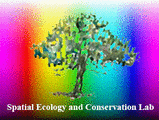Almeyda Zambrano
Introduction to Latin American Studies
LAS 2001
Half a billion Latin Americans share the Western hemisphere with the U.S. and Canada, and yet many Americans only know them through stereotypes reproduced in the media. Just who are the peoples making up this hazy region called Latin America? What events and processes have shaped the region? What is its relationship to other parts of the world? This course offers an introduction to Latin America that explores the social, geographical, and historical background and issues of the region, focusing on Iberian-colonized nations.
LAS 2001
Half a billion Latin Americans share the Western hemisphere with the U.S. and Canada, and yet many Americans only know them through stereotypes reproduced in the media. Just who are the peoples making up this hazy region called Latin America? What events and processes have shaped the region? What is its relationship to other parts of the world? This course offers an introduction to Latin America that explores the social, geographical, and historical background and issues of the region, focusing on Iberian-colonized nations.
Global Ecotourism and Sustainable Development
LEI 6325
This course is designed to provide an understanding of the concepts of sustainable development and ecotourism and their relationship. Theory, practice, and issues in sustainable development will be addressed. Theory, practice, history, terminology, and issues on ecotourism planning and management will be examined. Additionally, a basic survey of ecotourism components: motives and behaviors of tourists, natural resources as attractions and destinations, social and resource responsibility and establishing policies and principles for sustainability will be discussed.
LEI 6325
This course is designed to provide an understanding of the concepts of sustainable development and ecotourism and their relationship. Theory, practice, and issues in sustainable development will be addressed. Theory, practice, history, terminology, and issues on ecotourism planning and management will be examined. Additionally, a basic survey of ecotourism components: motives and behaviors of tourists, natural resources as attractions and destinations, social and resource responsibility and establishing policies and principles for sustainability will be discussed.
Entrepreneurship in Tourism, Recreation, & Sport Management
LEI 3843 Also offered online
This course analyzes the entrepreneurial opportunities in commercial recreation and tourism by examining the process of creating, planning and managing hospitality, recreation, and tourism business ventures.
LEI 3843 Also offered online
This course analyzes the entrepreneurial opportunities in commercial recreation and tourism by examining the process of creating, planning and managing hospitality, recreation, and tourism business ventures.
Research Methods in Tourism, Recreation, & Sport Management
LEI 4880
This course will provide students with a broad understanding of how to design and conduct research in Tourism, Recreation, and Sport Management (TRSM) and related fields. The objective of the course is to prepare students to investigate a research question of their interest. To this end, students will learn the foundations of the scientific method and will conduct an overview of quantitative and qualitative research approaches.
LEI 4880
This course will provide students with a broad understanding of how to design and conduct research in Tourism, Recreation, and Sport Management (TRSM) and related fields. The objective of the course is to prepare students to investigate a research question of their interest. To this end, students will learn the foundations of the scientific method and will conduct an overview of quantitative and qualitative research approaches.
Broadbent
Forest Ecology
FOR 3153C
This course is designed to provide students with an overview of 1) ecological principles at four major scales of biological organization (individual, populations, communities, ecosystems) with an emphasis on forests, 2) applications of these principals to a number of current environmental problems (biodiversity crisis, global environmental change, and others) impacting forests, and 3) how forest ecologists answer questions with observations and experiments.
FOR 3153C
This course is designed to provide students with an overview of 1) ecological principles at four major scales of biological organization (individual, populations, communities, ecosystems) with an emphasis on forests, 2) applications of these principals to a number of current environmental problems (biodiversity crisis, global environmental change, and others) impacting forests, and 3) how forest ecologists answer questions with observations and experiments.
Drone Ecology
SUR 6934
This course is designed to provide students with an overview of (1) ecological applications of geospatial data collected by unmanned aerial systems, (2) applications of these principals to a number of current environmental problems (biodiversity crisis, global environmental change, tropical deforestation and degradation, protected area monitoring, and others) impacting ecosystems, and (3) learn through discussion, field, and computer lab exercises how spatial ecologists use data from UAS to answer questions related to ecology and conservation across spatial and temporal scales, with specific consideration of how UAS might function to integrate social and biophysical sciences.
SUR 6934
This course is designed to provide students with an overview of (1) ecological applications of geospatial data collected by unmanned aerial systems, (2) applications of these principals to a number of current environmental problems (biodiversity crisis, global environmental change, tropical deforestation and degradation, protected area monitoring, and others) impacting ecosystems, and (3) learn through discussion, field, and computer lab exercises how spatial ecologists use data from UAS to answer questions related to ecology and conservation across spatial and temporal scales, with specific consideration of how UAS might function to integrate social and biophysical sciences.
Unmanned Aerial Systems Practicum
SUR 4940C/6934
This three-credit course provides students hands-on experience with flight planning and effective deployment of small unmanned aerial systems (UASs), and the subsequent processing and analysis of the imagery acquired on these flights.
SUR 4940C/6934
This three-credit course provides students hands-on experience with flight planning and effective deployment of small unmanned aerial systems (UASs), and the subsequent processing and analysis of the imagery acquired on these flights.
